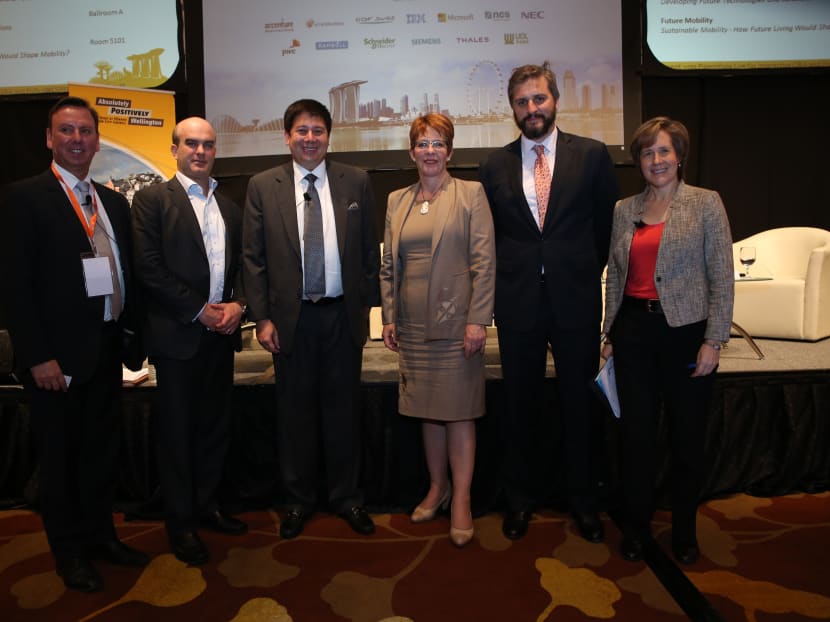How cities build resilience
SINGAPORE — It is a city with residents of 85 ethnicities, but New Zealand’s capital, Wellington, has managed to build social capital by avoiding ethnic enclaves and huge income gaps among suburbs, and by investing in facilities and community gardens.

Speakers at the dialogue included Tacloban Mayor Alfred Romualdez (third from left) and Wellington Mayor Celia
Wade-Brown (third from right). PHOTO: WORLD CITIES SUMMIT
SINGAPORE — It is a city with residents of 85 ethnicities, but New Zealand’s capital, Wellington, has managed to build social capital by avoiding ethnic enclaves and huge income gaps among suburbs, and by investing in facilities and community gardens.
In a quality of life survey conducted across 12 of the country’s cities, more than 80 per cent of Wellington residents said people from different cultures add to their quality of life, said Ms Celia Wade-Brown, the city’s mayor, on Tuesday at a World Cities Summit dialogue on social resilience.
“Being tolerant means there’s something to be put up with. You might be tolerant of your teenagers, you might be tolerant of loud music, but we shouldn’t be saying we should be tolerant of ethnic diversity. We should appreciate it,” said Ms Wade-Brown, who noted that celebrations in her city such as Chinese New Year, Christmas and Africa Day attract people from different cultures.
While there are some income disparities among suburbs in Wellington, which is home to more than 200,000 people and sits on the southern tip of New Zealand’s North Island, she noted that no one would know if one is on unemployment benefits, a Web developer or a successful property developer from the suburb one lives in.
But resilience is also about proper disaster management; social capital cannot be seen as a cheap way out of planning and building for disasters, she said. Wellington is prone to earthquakes and tsunamis, and public buildings have been strengthened, together with widespread education on what to do when a tsunami hits.
Meanwhile, the mayor of Tacloban city in the Philippines, which was devastated by Typhoon Haiyan last November, said at the dialogue that rebuilding has been a little slow due to the flow of funds, but planning is largely done.
Mr Alfred Romualdez said the city of about 240,000 people has modified its building code. Instead of defining no-build zones as those less than 40m from the coast, they are now defined as land less than 5m above sea level. Structures built must be above that height, said Mr Romualdez, who noted that typhoons of a higher magnitude could be “the new normal”.
Other steps included the setting of a reasonable timeframe for action by multiple stakeholders, added Mr Romualdez, who was reported last month as saying the majority of displaced residents were still living in evacuation centres and tent communities. He was invited to the Lee Kuan Yew School of Public Policy recently and said he learnt about good mechanisms for governance. “I’ve lost a lot of people and had to pick out new leaders.”
The Rockefeller Foundation of the United States is doing its part through the 100 Resilient Cities Centennial Challenge launched last year and will provide 100 cities with resources and technical support. The first 32 cities selected last December — including Ramallah in Palestine, Medellin in Colombia and New York City — vary in size and challenges faced.
Mr Michael Berkowitz, 100 Resilient Cities’ managing director, said the foundation helps the cities hire a chief resilience officer, a senior adviser who reports directly to the mayor, works across departments and oversees the resilience strategy. NEO CHAI CHIN






